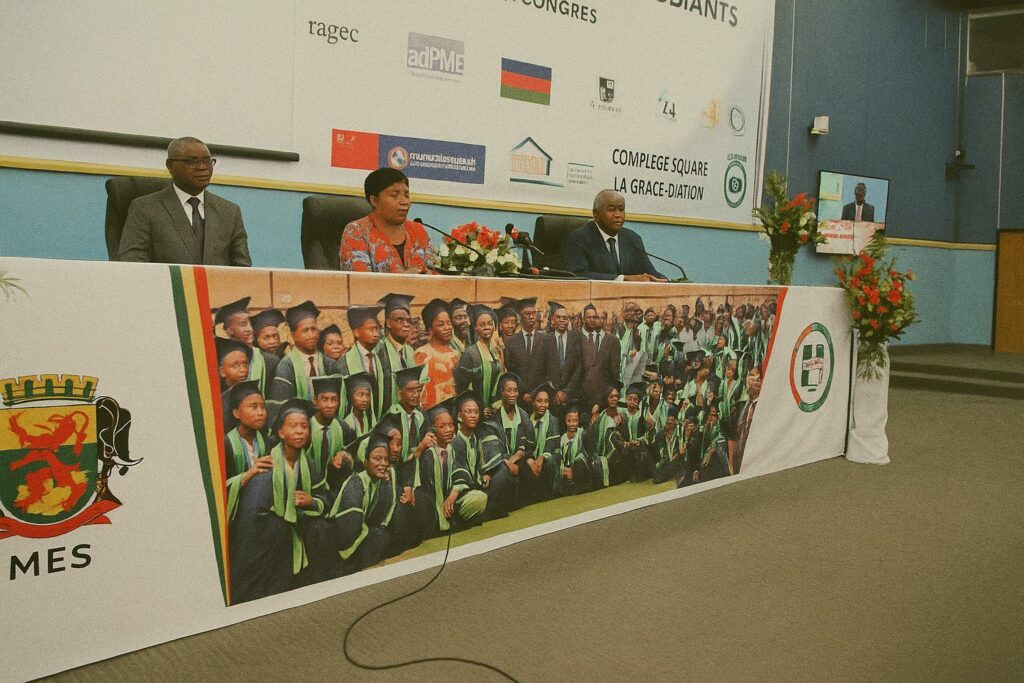A Strategic Campus at the Heart of the 2025 Youth Agenda
The government of the Republic of the Congo has signalled a decisive turn in its higher-education policy by endorsing the creation of what officials call an “inclusive university”, a concept that merges academic excellence with broad social access. Speaking at the close of the National Assizes on Student Employability and Entrepreneurship in Brazzaville, Minister of Higher Education Delphine Edith Emmanuelle framed the initiative as a cornerstone of President Denis Sassou Nguesso’s decision to extend the Year of Youth through 2025. Far from mere rhetoric, the move is intended to redirect tertiary institutions toward the twin objectives of relevance and equity.
From Assizes to Action: A Policy Pivot
The three-day forum gathered rectors, employers, development partners and an unusually vocal student delegation in an exercise that resembled a policy laboratory more than a ceremonial conference. Delegates dissected the chronic misalignment between curricula and labour-market demand—an issue highlighted in recent World Bank diagnostics, which estimate that fewer than one in three Congolese graduates secure formal employment within two years of leaving university (World Bank, 2023). Minister Emmanuelle told participants that the new institution would be mandated to remodel degree structures in consultation with sectoral chambers of commerce, thereby institutionalising the dialogue that the Assizes temporarily achieved.
Bridging the Skills Gap with Targeted Financing
In response to students’ calls for tangible support, the cabinet confirmed that two quasi-sovereign vehicles—the Fonds d’Impulsion, de Garantie et d’Accompagnement (Figa) and the Fonds National d’Appui à l’Employabilité et l’Apprentissage (Fonéa)—will act as financial lungs for start-ups incubated on the new campus. Together, the funds manage roughly 40 billion CFA francs in portfolios earmarked for youth entrepreneurship, according to the Ministry of Finance. Senior officials argue that the linkage between academic output and concessional capital could mitigate the well-documented financing bottleneck that inhibits ninety per cent of early-stage ventures in Central Africa (African Development Bank, 2022).
Inclusive by Design: Accessibility and Gender Parity
Government drafts seen by ACI envisage a multi-site campus with adaptive infrastructure for students with disabilities and scholarship quotas for learners from remote departments such as Likouala and Plateaux. The emphasis on inclusion echoes UNESCO’s reminder that Congo’s tertiary gross enrolment ratio stands at 12 per cent, below the sub-Saharan average of 9 points higher (UNESCO, 2022). Gender parity is another lodestar. Officials have floated the idea of ring-fenced bursaries in science and technology for women, a measure welcomed by the United Nations Economic Commission for Africa as consistent with continental best practice.
Regional and International Cooperation
Brazzaville’s diplomatic corps notes that the venture dovetails with the African Union’s Continental Education Strategy, which encourages member states to cultivate universities as vectors of economic diversification. Preliminary conversations are under way with Portuguese and Moroccan universities to establish joint laboratories in renewable energy engineering, a field aligned with Congo’s ambition to monetise its substantial hydroelectric potential. The Ministry of Foreign Affairs has intimated that such partnerships could be formalised during the next summit of the Economic Community of Central African States.
A Measured Optimism among Stakeholders
Student union leader Victoire Mavoungou described the dialogue as “the first time policymakers have asked us what kind of degrees we want, not merely which degrees we have.” Private-sector representatives, for their part, cautioned that curricular reform must be iterative and data-driven. Yet the tone at the Assizes never slipped into cynicism. Development partners praised the openness of the proceedings, and the ministerial delegation promised periodic scorecards to track employability indicators. While the road to an inclusive university is lined with budgetary and administrative hurdles, the political momentum—buoyed by the President’s youth narrative—appears resilient.
Looking Ahead: An Academic Social Contract in the Making
In the measured words of Minister Emmanuelle, the project seeks nothing less than “a new social contract between the university and the Congolese people”. The formulation resonates in a country where tertiary education has long oscillated between elite gateway and overcrowded rite of passage. By anchoring its blueprint in employability metrics, entrepreneurship capital and inclusive access, Brazzaville is wagering that universities can be both engines of knowledge and ladders of social mobility. For diplomats monitoring Central Africa’s demographic surge, the experiment merits close attention: it might well offer a template for harmonising political vision with the concrete aspirations of a youthful electorate eager for dignity through work.

